
866-288-8001

News & Insights
Return To News
How to Sail Through an IRS Audit: A Guide for Travel Nurses
Disclaimer: We’re not accountants or lawyers and the information provided here is based on a layperson’s perspective on travel nursing taxes. For tax advice, please consult an accountant, like the experts at TravelTax.com .
May you never have to endure the arduous process of an IRS audit. It’s like getting blood drawn: no one’s favorite activity. And while audits can affect (or afflict) less than 1% of the population, unfortunately, it is true that travel nurses can have a higher chance of getting audited. Here are some reasons why:
- Generally speaking, the nature of your work and how you make money doesn’t fit nicely into a normal tax box, so the system wants to double check that you’re being a good and honest citizen. (Apparently, just being a nurse isn’t proof enough.)
- The IRS wants to see about your unreimbursed expenses. This is one of the most common reasons for being selected. Due to the nature of travel nursing, your expenses compared to your income can look suspicious, even if there’s no funny business.
- Your agency is audited and the IRS is checking out all employees.
- Your taxable wages are low enough that the IRS took notice.
- You have a lot of deductions.
- Plain old bad luck. Some audits are random.
The purpose of an audit is to prove to the IRS that you earned what you claimed and that your deductions were legitimate. But if you’ve stayed on top of your finances and tax info, your audit could hurt less than last year’s flu shot.
Also, keep in mind that almost all individual audits are resolved through the mail , without having to deal with an agent.
Here’s what you can do to prepare for the day you hope never arrives.
- Remain calm! The first thing to know is that you will get through this, like many other people have. And when the IRS re-checks your documentation, it may have been their mistake. If it’s yours, however, you do have to pay the difference plus any fees that may have incurred.
- Get your docs in a row! Remember that you can be audited for a return you filed two or three years ago. The rule of thumb is to keep your records for seven years before tossing them. You’ll want copies of things like credit card statements, bank receipts, contracts, pay stubs, and mileage logs.
- Know your rights! For example, you can reconstruct lost records . You also are under no obligation to provide extra info — you only need to give what’s required. And, you can always hold your audit offsite in a neutral area.
- Do your homework! If that questionable line item on your return is legit according to tax law, be ready to prove your case to your agent.
- You can delay your audit! Note: this does not mean ignore it — you have to request your delay. This can buy you time to return to your permanent home or to collect documentation that may be from many cities ago. But if you’re following Step 2, you should be good to go.
- Call in the professionals who deal specifically with travel nurse taxes. You don’t have to go it alone.
And that’s it. Comply with all IRS requests, save your documents, and appeal your case if you don’t like the results. Do these things, and you’ll be calling a Code Clear on your audit in no time.
Did you get audited and live to tell about it? Tell us your survival tips in the comments below, and be sure to check out our entire travel nurse tax series .
If you’d like to see more articles on Finances, click here .
Recent Articles
8 not-so-obvious essentials for day hikes, top tips for dealing with difficult patients, unlocking opportunities: top benefits of traveling to new cities.
- Next »
Privacy Overview
How Often Do Travel Nurses Get Audited and What Can You Do About It?
by Trusted Nurse Staffing | Jun 1, 2021 | News | 0 comments

There’s not much worse than doing your taxes. But the threat of an audit may be worse.
Travel nurse income is complex and this can increase your risk of being one of the unfortunate ones chosen by the IRS.
As a travel nurse, you want to hope for the best and plan for the worst. There are ways to protect your tax return from an audit.
In this guide, we’ll go through the risks travel nurses have of getting audited, and how you can reduce your risk of it happening to you.
Table of Contents
Could you be at a higher risk of an irs audit as a travel nurse, why travel nurses are at a higher risk of getting audited, what are irs red flags, what does the law say about taxable hourly wage for travel nurses, what is an accountable plan, what does this mean for travel nurses, what should the minimum taxable wage for travel nurses be, what does the irs know about your income, underreported income, what you can do to avoid an audit.
- Keeping Proper Records
Properly Label Your State of Residency on Your Tax Return
Trusted nurse staffing is here to support you.

In short, maybe.
Travel nurses are paid differently than permanent staff nurses. They receive both base hourly pay that is taxed and additional “payments” that are not taxed. These two sources of income make up a travel nurse’s total pay package.
These additional stipends can include such things as:
- Housing; and
- Work-related expenses
Because these things are considered expense reimbursements for doing your job as a travel nurse, they are not considered income and are non-taxable.
To qualify for these stipends, you need to work at a facility greater than 50 miles from your permanent tax residence.
This results in a duplication of expenses for things like:
- Utilities; and
It’s important to note that we are not legal experts, and we always recommend talking to a tax professional. Travel nurses can experience tax audits at a higher rate than other positions because of the high rate of nontaxable income compared to taxable income.

Travel nursing income is not a traditional “make a base pay, get a W-2” position. The way that a travel nurse’s income looks on paper can look suspicious to the IRS.
Here are some reasons why travel nurses have a higher chance of getting audited:
- Your expenses compared to your income can look suspicious. The IRS may see a lower base pay, yet unusually high expenses for that base pay. The IRS may want to double-check to make sure you’re being honest on your tax return.
- The travel nurse agency may be audited, which means the IRS will look into all of its employees.
- Your taxable income may be low enough for the IRS to take notice.
- You may have a lot of deductions on your tax return.
Not all audits are brought on by red flags. You could just have bad luck!
Travel nurses may make more than staff nurses, but the income flow looks different for a travel nurse than a stationary, full-time position at a hospital or facility.
IRS red flags , in short, are anything that the IRS thinks is suspicious.
Tax returns with anomalies are more likely to be flagged for an audit. Below are a few that may apply to travel nurses and why travel nurses may get audited more often.
Failing to Report Taxable Income
This is, of course, a big oops. The IRS has means of knowing if you left out sources of income . They receive copies of income reporting forms such as 1099s, W-2s, etc. that are sent to you.
They then match this information to individual tax returns to ensure all income is reported. If this is inaccurate, they may begin to consider what else you could be hiding.
This then raises a red flag to the IRS.
Deductions Are Disproportionately Large Compared to Your Income
If your deductions or credits on your return are disproportionately large compared to your income, another IRS red flag could be raised. If you’ve got the documentation to back it up, that’s ok.
It’s important to keep in mind that tax reform laws did away with many tax deductions of job expenses at the federal level. Be sure to check your state laws as these may differ.
Big Deductions for Meals and Travel Expenses
Under the new law, taxpayers can continue to deduct 50% of the cost of business meals if you, the taxpayer, are present and the food or beverages are not considered extravagant.
Unfortunately, that triple-Michelin star restaurant you wanted to try in your new city probably would not qualify. You can still try it! Just not on your agency’s dime.
Still a good rule of thumb:
Document everything you think is a possible deduction on your taxes.

There is no law, statute, or IRS regulation specifying the exact taxable hourly wage for travel nurses. So audits and red flags are reviewed on a case-by-case basis.
This is the responsibility of your travel nursing company. To legally pay tax-free reimbursements, the travel nursing agency must have what the IRS calls an “ accountable plan .” An accountable plan is created by your agency to document rules for allowance or reimbursements.
A travel nurse can receive reimbursement for expenses if their accountable plan has these three rules:
- Your expenses must have a business connection. You must have paid or incurred deductible expenses while performing services as an employee of your employer.
- You must adequately account to your employer for these expenses within a reasonable period of time.
- You must return any excess reimbursement within a reasonable period of time.
The definition of a “reasonable period of time” depends on your situation . Either way, it does mean that you must account for your relevant expenses to your travel nursing agency.
Review your contract thoroughly and see if those three rules mentioned above are included in their reimbursement plan.
The IRS is concerned about excess reimbursements. Even if your agency does have an accountable plan, each expense you have may not meet those three rules and are subject to a different set of rules.
It’s good practice to know:
- When and how you need to report your expenses
- What your base rate of pay will be
- What are reimbursements you can expect
Individual agencies, associations, and tax experts are often left to make judgment calls on where expenses fall in these categories — Is that expense labeled as reimbursement or not?
The minimum taxable wage for travel nurses varies depending on the contract. What you should accept depends on you.
It may seem like having non-taxed stipends is a great deal for a travel nurse. But this income will not be reported on your annual income and this has a few drawbacks.
If you find yourself considering a …
- Disability payment; or
- Are reaching the age to collect Social Security
… these institutions look at your reported income.
They make a judgment on that number whether you have the means to pay back a loan, to afford that mortgage, or how much Social Security you are entitled to. Consider carefully if you have any of these financial goals and how banks and financial institutions look at your income.
The IRS knows a lot more than you think.
They have everything you included with the tax return:
- Mortgage interest
- Dependents declared
- Previous tax returns
Travel nurse tax returns can look suspicious regardless of their truthfulness. It’s best not to give the IRS any more reason to look twice at your return. Underreporting your income is a criminal act if you willfully disregard the tax code.
Omar, for example, made a calculation error and accidentally included a couple more deductions on his return than he is owed. He might still be penalized by the IRS, but won’t be charged as a criminal for it.
Yannika, on the other hand, intentionally labeled her taxable income as far lower than it should be to attempt to pocket more of her income. This is dipping her toe into willfully disregarding the tax code, opening her return up to intense scrutiny by the IRS.

This may sound like it’s coming from a broken record, pun intended, but it’s essential to keep your records.
Keep Proper Records
Get organized and stay organized.
As a travel nurse, documentation and record-keeping is likely something you are already well versed in. Travel nurses frequently have to present documentation for new contracts or agencies.
A good rule of thumb is to keep your records for seven years.
As time passes and you move from assignment to assignment, sometimes it’s hard to keep all of your records together. If for some reason you are missing receipts or other documents, you can reconstruct those records .
You can be audited for a return you filed two to three years ago — so it’s a good idea to keep as many records as you can.
Here are some examples of receipts you can include in your tax return records:
- Uniform and scrub expenses
- Continuing education courses or certifications
- Housing and lodging expenses while traveling
Copies of Your Contracts
Keep copies of all of your travel nursing contracts. This is proof that you worked away from your tax home.
Copies of Travel Expenses
In addition to typical print or digital receipts, it’s important to keep copies of things like:
- Credit card statements
- Bank receipts
- Mileage logs
Depending on your state of permanent residence, job expense deductions may look different.
The IRS considers your tax home as your city of permanent residence or where you regularly live.
As a travel nurse, you’re often working in temporary placements an average of eight to ten weeks long. Working in any location for under twelve months is not considered a move of permanent residence.
This is an important distinction to make on your tax return.
Just in case you need to survive an IRS tax audit, those of us at Trusted Nurse Staffing are here to support you.
The reason you became a travel nurse, or are thinking of becoming one , probably has nothing to do with deductions and meal reimbursements. Those are just a bonus.
We make our payment and invoicing process as simple as possible.
Depending on how you prefer to keep your records, our nurses can choose to be paid weekly or can choose direct deposit or live check.
Our payroll app and website make reviewing your paystubs easy. There, you can also change your address, and view your year-end tax documents with ease.
The staff at Trusted Nurse Staffing are here to support you along the way.
Submit a Comment Cancel reply
Your email address will not be published. Required fields are marked *
Save my name, email, and website in this browser for the next time I comment.
Recent Posts
- Can Travel Nurses Have Mentors? The Types of Mentors Available To Travel Nurses and How To Find One
- Making the Switch From Staff Nursing To Travel Nursing: Considerations and Tips To Make the Transition Successful and Stress-Free
- Travel Nurse Job Outlook for 2024 and Beyond
- Build Your Career: 6 Networking Tips for Travel Nurses
- Career Changes for Nurses Who Want To Transition Away From a Clinical Setting

IRS Audits, Travel Nurses, & What You Need To Know

- November 3, 2022
- Ninja News Flash
Travel nurses can be at greater risk of an IRS audit due to the complexity of their job and typical reimburse ments they receive from their assignment . IRS audits are always somewhat of a fear for many , but with the right understanding of the elements that increase the risk of an audit , nurses can better protect themselves by being prepared and taking proactive measures .
According to:
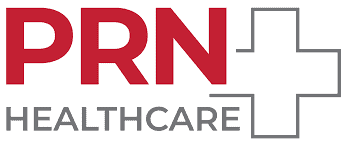
- The IRS may want proof of pre-reimbursed expenses
- Your travel nursing AGENCY is getting audited
- Your tax returns are not considered “normal”.
- You received a low taxable income for the year
IRS Audits for Travel Nurses When Staffing Agency is Audited
One of the more obvious risk factors that could increase the chance of an IRS audit is the pre – re im burse ment expenses that many travel nurses receive from their agencies . During the 2018 tax season, the IRS sent out numerous letters to both agencies and travel nurses alike inqu iring about the reimbursement forms that were issued . It is important for the nurse and the agency to know that all reimburse ments must be pre – approved and verified by the IRS .
In addition , if the travel nurse ‘s agency is being aud ited , the nurse may be subject to an individual audit as well . This is because of the presumption that tax information is shared between employers and employees , and it is always best to provide accurate information to the IRS .
Travel Nurses Pay Is Outside of "Normal" and Can Result in an IRS Audit
Another factor that could increase the risk of an IRS audit is if the travel nurse ’ s tax return is judged to be out of the ordinary or does not fit into the “ normal ” parameters of tax filing . This could include large deductions with unclear explanations . Although deductions can significantly reduce the amount of taxes owed , if the information sent to the IRS is not sufficient or raises questions , an audit may result .
In the same way , a lower taxable income for the year can also draw extra attention to a return . This is something that nurses should be aware of as many of their temporary housing expenses are fully deductible . For tax filing purposes it may be best to only take the total amount of the expenses and not deduct too much .
IRS Audits Can Go Back 3-4 Years
Travel nurses need to be aware that an IRS audit can happen for any given year from 3 or 4 years ago and it ’ s important to keep all financial paperwork for that period , including documents that verify pre – appro val of reimburse ments . Examples of documents that should be maintained include credit card statements , travel nurse contracts , bank statements , pay stub s , and mileage logs .
If an IRS audit is conducted the most important thing that the travel nurse can do is comply with the IRS requests . It may be beneficial to have a tax professional that specializes in travel nursing available to help explain relevant information or offer advice .
Other important things to note are that the IRS does not provide audits over the phone , and asking for a payment plan could prevent potential fines and penalties .
Staying Prepared for an IRS Audit Throughout the Year
Overall , knowing the risk factors and staying prepared is key to minimizing the chances of an IRS audit . Although the process can be intimidating , ensuring that the nurse provides all the information that the IRS requires is the best thing they can do to protect their money .
It is important for travel nurses to understand that they may be at an increased risk of an IRS aud it due to the complexity of their job and the associated reimburse ments that accompany it .
Potential audits should be taken seriously as it is not uncommon for the IRS to request proof of pre – re imb ursed expenses , especially if the nurse ’ s agency is being aud ited . Additionally , if the nurse ’ s tax returns are perceived as outside of the “ normal ” or they have a significantly lower taxable income result for the year , they could also be subject to an IRS audit .
Prepare for IRS Audits With Organized Record Keeping
- Credit Card Statements
- Travel Nurse Contracts
- Bank Statements
- Mileage Logs
To minimize the chances of an IRS audit , travel nurses should be prepared by having as many relevant documents related to their situation available . This includes credit card statements , travel nurse contracts , bank statements , pay stub s , and mileage logs . It may also be useful to hire a tax professional that specializes in travel nursing as an added source of information for any questions or concerns that may arise .
When in the midst of an audit , the nurse must comply with all requests from the IRS and be sure to meet all deadlines . Failure to do either could result in heavy fines and penalties . Finally , asking the IRS to provide a payment plan could help minimize the severity of the audit and allow the nurse to make reasonable payments until the audit is complete .
Final Notes on IRS Audits for Travel Nurses
Ultimately , being aware that travel nurses are at an increased risk of an IRS audit and knowing the risk factors can help them take the precautions necessary to lessen the possibility of it occurring .
Whether they are just starting out as a travel nurse or are already in the midst of an audit , making sure they are organized and prepared is key . With the proper knowledge and understanding of IRS policies and pro actively maintaining the right documents , the risks of facing an IRS audit can be significantly reduced .
The Ninja News Flash⚡
Subscribe today for bi-weekly free resources, alerts, freebies, and more specifically for travel nurses, PRNs, and O/O Truckers valuable insights regarding YOUR Industry AND healthcare, insurance, and work/life balance. Like & Share please.
About This Resource
- Date: June 17, 2022
- Publication Site: PRN Healthservices
- Author Name: Emily Larabell
- Credited Full Article Here
Stay in the Ninja News Loop!
Subscribe to our monthly newsletter & receive all our free resources once a month in your Inbox.

Check Us Out!

The Truth About Per Diem Vs Part Time: What You Need To Know
Per Diem or Part Time nursing, what’s right for you? The world of nursing today presents an excellent variety of choices for work settings and

The Best Paying Nursing Jobs of 2024: Maximize Your Earnings
Nursing jobs can be very rewarding careers, both personally and financially. The median annual salary for registered nurses (RNs) in the US is $81,220. However,

Student Loan Forgiveness for Nurses: What You Need to Know
Student Loan Forgiveness can be the answer to many nurses struggling with debt. There is hope for relief through student loan forgiveness programs specifically designed
Our Mission at The Health Insurance Ninjas is to provide dedicated customer service & health insurance products with honesty, experience, & integrity.
- +(855) 467-6465
- [email protected]
- 4098 Darby Road, Dayton, OH 45431
Recent news
- Life Insurance
- Long-Term Care
- Monthly Ninja Newsletter
- Uncategorized
- Back

Unlock Cash From a Life Insurance Policy with No Repayment!

What You Need To Know RE Insurance: Health, Life, & Annuities
This website uses cookies to provide you with the best browsing experience.
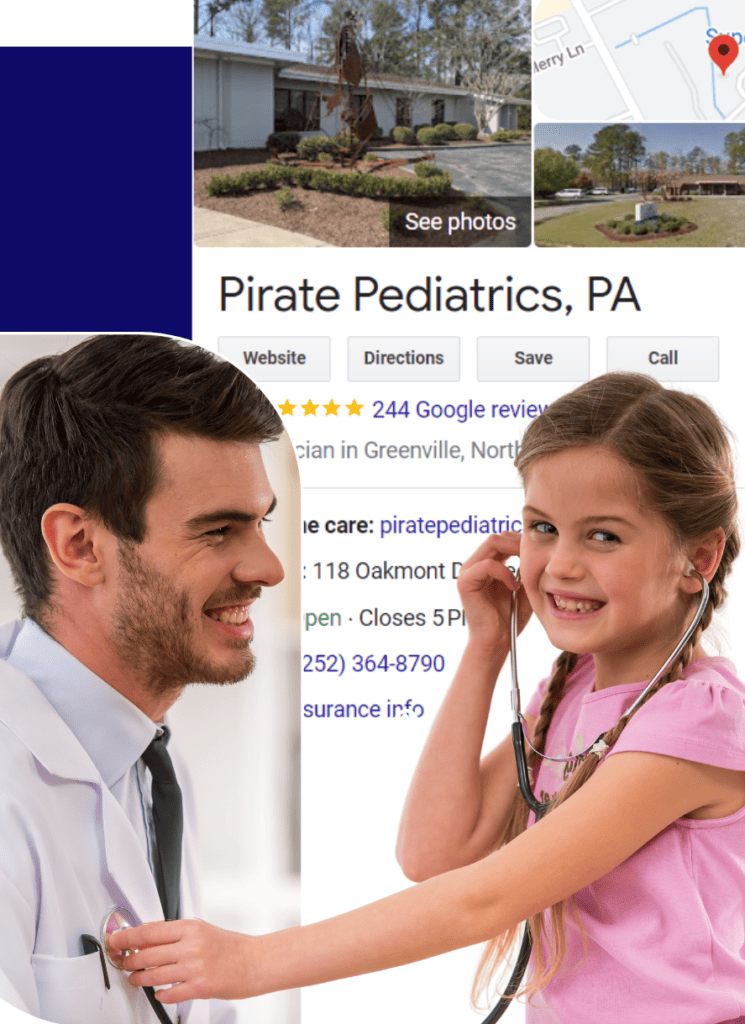
Start a Consultation with The Health Insurance Ninjas

Opt Into (1) Facebook Reminder
Raffle reminder.
Never miss another chance to the enter the 🤑 FREE monthly “Nurse on the Go!” raffle!
Let's Connect!
The Enlightened Mindset
Exploring the World of Knowledge and Understanding
Welcome to the world's first fully AI generated website!
How Often Do Travel Nurses Get Audited?
By Happy Sharer
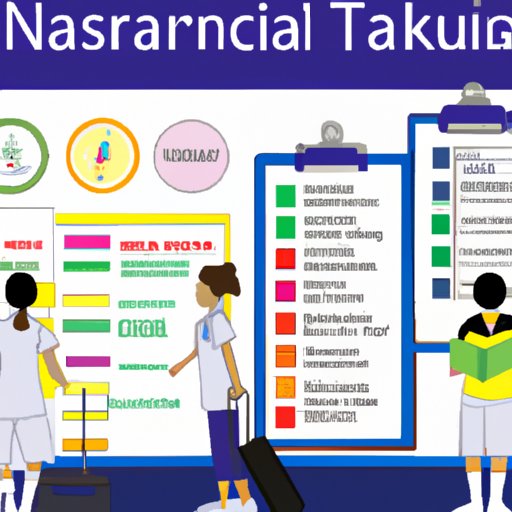
Introduction
Travel nursing is a growing profession that offers nurses the opportunity to travel around the country in order to provide healthcare services. As with any profession, travel nursing can come with its own unique set of regulations and requirements that must be followed in order to remain compliant. One such requirement is undergoing audits, which are used to ensure that all documentation and paperwork is in order and that all regulations are being followed. This article will explore how often travel nurses get audited and dive into the details of the audit process.

Interview with a Travel Nurse about their Experiences with Audits
In order to gain some insight into the experience of a travel nurse who has gone through an audit, I spoke with a travel nurse named Sarah. Sarah has been a travel nurse for three years and has completed four assignments in different cities across the United States. She explained that she has only been audited once during her time as a travel nurse, but that it was a very thorough process.
Sarah said that the audit was conducted by the state board of nursing, which sent an auditor to her assignment to review her records and paperwork. The auditor asked numerous questions about her work and the paperwork she had submitted. Sarah said that the process took several hours, but that the auditor was very professional and made sure that she understood the process. After the audit was complete, Sarah said that the auditor told her that she was in compliance with all regulations and that she did not need to make any changes.
Overall, Sarah’s experience with audits is not unusual. While travel nurses may not be audited every assignment, it is important for them to understand the process and be prepared for the possibility of an audit.
Analyzing the Frequency of Audits for Travel Nurses from Data and Statistics
In order to gain a better understanding of the frequency of audits for travel nurses, I looked at data from the American Association of Nurse Anesthetists (AANA). According to the AANA, travel nurses are typically audited once every two years, although this number can vary depending on the state or region in which the travel nurse is working. The AANA also reported that the majority of audits are conducted by state boards of nursing, although there are other agencies that may also conduct audits.
I also looked at data from the National Council of State Boards of Nursing (NCSBN). According to the NCSBN, over 50% of travel nurses have reported being audited within the past year. Additionally, the NCSBN found that the most common reason for audits is to verify that the travel nurse is in compliance with all state and federal regulations. These findings suggest that while audits may not be frequent, they do occur and it is important for travel nurses to be prepared.

Exploring the Regulations Surrounding Travel Nurse Audits
In order to understand the regulations surrounding travel nurse audits, I spoke with an expert in the field. The expert explained that the regulations for travel nurse audits vary from state to state, but generally require that the travel nurse submit certain documents and paperwork prior to beginning an assignment. These documents include proof of licensure, proof of malpractice insurance, and proof of immunizations. In addition, the expert stated that the travel nurse must maintain accurate records of all patient care provided.
The expert also explained that the regulations for travel nurse audits are designed to protect both the patient and the travel nurse. They ensure that the travel nurse is properly trained and qualified to provide care, as well as that the patient is receiving the highest quality of care possible. By following these regulations, travel nurses can avoid the risk of being audited and ensure that they are providing the best care possible to their patients.
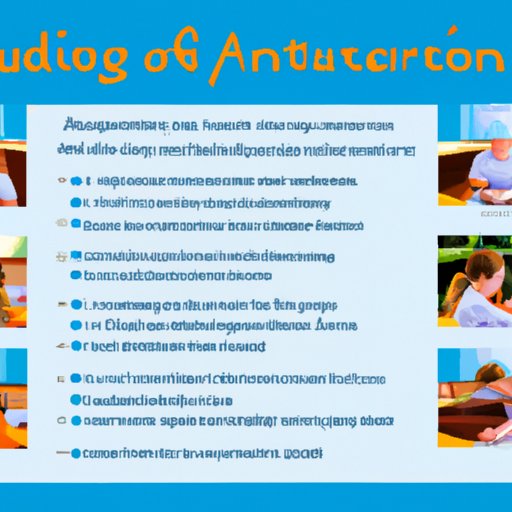
An Overview of the Typical Audit Process for Travel Nurses
Once a travel nurse has been selected for an audit, they will typically receive a notification letter informing them of the audit. The letter will explain the purpose of the audit and provide instructions on what documents and information the travel nurse should provide. During the audit, the auditor will review the travel nurse’s documents and ask questions about their work. The auditor may also request additional documents or information if necessary. Once the audit is complete, the auditor will provide a report of their findings and the travel nurse will either be cleared of any violations or required to take corrective action.
It is important to note that there are several different types of audits that travel nurses may be subject to. These include clinical audits, financial audits, and Medicaid audits. Each type of audit has its own specific purpose and requirements, so it is important for travel nurses to be familiar with the different types of audits and the regulations surrounding them.
Examining the Pros and Cons of Audits for Travel Nurses
When it comes to audits, there are both pros and cons for travel nurses. On the one hand, audits can help ensure that travel nurses are complying with all regulations and that their documentation and paperwork are in order. This can help protect the travel nurse from any potential legal issues and ensure that they are providing the highest quality of care to their patients. On the other hand, audits can be time consuming and stressful for travel nurses. It is important for travel nurses to understand the process and be prepared for the possibility of an audit.
Audits are an important part of the travel nursing profession and can help ensure that travel nurses are in compliance with all regulations and providing the best care possible to their patients. While audits may not be frequent, it is important for travel nurses to understand the process and be prepared for the possibility of an audit. By following the regulations and maintaining accurate documentation and paperwork, travel nurses can ensure that they are in compliance and avoid the stress of an audit.
As this article has shown, audits are an important part of the travel nursing profession and should be taken seriously. By understanding the regulations, the typical audit process, and the pros and cons of audits, travel nurses can be prepared for the possibility of an audit and ensure that they are providing the best care possible to their patients.
(Note: Is this article not meeting your expectations? Do you have knowledge or insights to share? Unlock new opportunities and expand your reach by joining our authors team. Click Registration to join us and share your expertise with our readers.)
Hi, I'm Happy Sharer and I love sharing interesting and useful knowledge with others. I have a passion for learning and enjoy explaining complex concepts in a simple way.
Related Post
Exploring japan: a comprehensive guide for your memorable journey, your ultimate guide to packing for a perfect trip to hawaii, the ultimate packing checklist: essentials for a week-long work trip, leave a reply cancel reply.
Your email address will not be published. Required fields are marked *
Expert Guide: Removing Gel Nail Polish at Home Safely
Trading crypto in bull and bear markets: a comprehensive examination of the differences, making croatia travel arrangements, make their day extra special: celebrate with a customized cake.

Travel Nurse Tax Guide 2023
Navigating travel nurse taxes can be a challenge, especially because travel nurse tax amounts can be a bit different depending on what state or states you worked in. In general, however, taxes are very different for travel nurses compared to traditional staff nurses. From choosing a tax home to keeping your receipts to knowing exactly how your income will affect your long-term financial goals, here is the information you need to know about travel nurse taxes.
RN’s can earn up to $2,300 per week as a travel nurse. Speak to a recruiter today!
Travel Nurse Taxes + Income Breakdown
Travel nurses are paid differently than staff nurses because they receive both a base hourly pay that is taxed and additional “payments” that are non-taxed to make up their “total” pay. When you sign up to commit to a travel nurse position you’ll receive a pay package that will detail all of the different aspects of what will make up your actual compensation.
Essentially it’s in the travel nursing agency’s best interest to keep the base rate of a travel nurse’s pay package low, so many travel nurses have a modest base pay but will receive additional stipends. In a technical and legal sense, those additional stipends — which typically cover things like meals, housing , and work-related expenses — are expense reimbursements for doing your job as a travel nurse, which is why they aren’t considered income and are non-taxable.
Travel agencies offer “standardized” bill rates. This means that there is one rate for all workers with any given license covered by the contract. For example, all Registered Nurses have the same bill rate, all Physical Therapists have the same bill rate, and so on. It’s also possible for the licenses to be broken down by specialty and every so often by level of experience. For example, Medical Surgical and Telemetry Registered Nurses have one rate while all other Registered Nurses have another. Registered Nurses with 1-3 years of experience get one rate, while those with more than 3 years of experience get a slightly higher rate. The important thing to understand is that standardized bill rates are set in stone by the contract for all intents and purposes. There is no possibility of negotiating a higher bill rate based on a particular travel nurse’s salary history or work experience.
Joseph Smith, EA/MS Tax, an international “taxation master” and founder of Travel Tax , explains that in addition to their base pay, most travel nurses can reasonably expect to see $20,000-$30,000 of non-tax reimbursement payments in a typical year working as a travel nurse.
Find travel nurse credit cards to earn points or miles while traveling.
Qualifying For Non-Taxable Income
In order to avoid being taxed on those reimbursement payments, however, you need to clearly prove that you have what’s called a “tax home” to the IRS. The IRS defines a tax home as “the entire city or general area where your main place of business or work is located, regardless of where you maintain your family home.”
Smith explains that you can qualify for a tax home in two main ways:
- If your primary area of residence is also your main area of income, which typically does not apply to travel nurses.
- You visit your primary residence at least once every 12 months and can prove that you are paying for expenses to maintain your primary home.
If you can’t prove that you have a tax home, or don’t meet the qualifications for having a tax home, you will be taxed on the stipend payments you receive as part of your travel nurse pay package. Additionally, Smith cautions that most travel nursing agencies will not verify that you qualify for a tax home, so it’s up to you, the travel nurse, to ensure that you are meeting all requirements for establishing a tax home in order to collect your non-taxable stipends.
Joseph Smith, EA/MS Tax, an international “taxation master” and founder of Travel Tax, explains that in addition to their base pay, most travel nurses can reasonably expect to see $20,000-$30,000 of non-tax reimbursement payments in a typical year working as a travel nurse.
While many people commonly believe that you must have your tax home at least 50 miles away from where you work as a travel nurse, there’s actually no specific distance requirement . The only real requirement is that you must prove that it’s farther away than a reasonable commute and requires rest and sleep before going back and forth.
You should always check with a tax professional, but in general, travel nurses can take the following steps to help ensure that they qualify for a tax home in the eyes of the IRS:
- Keep proof of any payments you are making to show that someone else is maintaining your primary residence, such as receipts for a house sitter, mortgage, rent, utilities, or home maintenance expenses.
- Maintain your driver’s license and voter registration in your home state.
- Keep your car registered in your home state.
- Keep a per-diem position, if possible, in your home state.
- Return to your permanent home at least once every 13 months.
- File a Residence Tax Return with your home state.
To file taxes correctly, it’s very important to maintain your tax home and prove that you have to actually pay for “double” of everything—for both your tax home and your new living situation as a travel nurse. That means that if you rent out your home temporarily while you’re gone, you no longer can classify it as a tax home.
What About State Taxes?
Travel nurses should plan on filing their taxes by the April 15th deadline, just like everyone else in the United States, although there may be a little wiggle room for extensions due to the nature of being a multi-state professional as a travel nurse, according to Smith. Every state has different laws for filing taxes, but travel nurses may need to file a non-resident tax return in every state they have worked in, as well as the state that they consider their permanent tax home.
Travel Nurse Tax Tips

Smith advises travel nurses to keep a receipt book to help them make tax preparation a little easier by having all of their paperwork in one place. Although digital receipts may be more convenient or “modern” for younger nurses, keeping paper copies as a backup is always recommended. Your receipts can include things like:
- Housing and lodging expenses while traveling
- Mileage travel
- Uniform and scrub expenses
- Work-related expenses, such as continuing education courses or certifications you must maintain to keep your position
- Costs for Internet and phone providers
The 2022 tax reform laws did away with many job expenses at the federal level , which means that travel nurses can’t deduct certain travel-related expenses such as food, mileage, and gas on their federal return. You can still get a stipend or reimbursement from your travel agency for those expenses, but they may not count as deductions.
That being said, a handful of states still allow job expense deductions on your state tax return, such as New York , California , Alabama, Hawaii , and Arkansas, so there may be additional tax deductions you can make if you’ve worked in a qualifying state.
Smith also adds to be careful when filling out residency on your tax return, as he sees many travel nurses make the mistake that working a travel assignment means they have moved. However, working a temporary (under 12 months) travel nursing position does not qualify as a move of your permanent residence — instead, they are just away from home temporarily and that’s an important distinction to make come tax time.
Keep your tax home as a permanent residence address, and don’t change it unless you actually move permanently!
Explore Online BSN Programs
Explore Online MSN Programs
Can You Get Audited As A Travel Nurse?
The travel nursing industry as a whole does tend to be scrutinized closely, says Smith. As a travel nurse, you may be more at risk for an audit if you’re displaying high expenses and low income. For instance, if your mortgage is $10,000 a month, but your overall income with your base pay as a travel nurse is only $20,000 annually, the IRS may be puzzled as to how you’re actually affording your lifestyle.
You can reduce your risk of an audit, or increase your risk of getting through an audit favorably by always making sure to work with a certified tax professional who is familiar with traveling healthcare professionals and not solely relying on your nurse recruiter or travel staffing agency for tax advice.
Lower Taxable Income Considerations
One of the appeals of travel nursing is that you have the potential to make a high income, especially through non-taxed stipends. And although at first glance, having non-tax stipends for things like housing may sound like a great deal for you as a travel nurse, it does come with a catch: because the additional stipends you receive as a travel nurse are not taxed, they are not considered income, and as such, will not be reflected in your annual income.
That may not sound like that big of a deal unless you find yourself in need of a loan, mortgage, or disability payment, or are nearing the age to collect Social Security. All of the aforementioned items are calculated based on your income. The lower your income, the lower the loan amount you will qualify for, and the less you are contributing to Social Security and therefore will be eligible to collect when you’re ready for retirement.
If you know that you will be needing a loan or a mortgage in the near future, Smith suggests talking to your lender as far in advance as possible to explain your situation and plan ahead. Working with a lender who is familiar with the pay structure for travel nurses can also be helpful.
In some circumstances, such as for nurses who are nearing Social Security’s retirement age, it may also be helpful to legally declare that you don’t have a tax home on your tax return, and instead, pay taxes on all of your stipends, so you can count it as taxable income.
And remember – you should use this guide as information to help you learn more about filing taxes as a travel nurse but remember that it is not tax advice. You should always consult your own CPA or tax professional before filing your tax return.
Travel Nurse Tax FAQs
Yes, all travel nurses must pay taxes on all income that they earned. They will need to file a tax return for every state that they worked in, as well as their home state where they have permanent residence.
If possible, it’s always beneficial to work with a tax professional, such as a Certified Public Accountant who can help you file and pay taxes that you owe as a travel nurse. An accountant can provide you with the physical paperwork that you can use to mail your tax payment in or help you set up an online account if digital payments are acceptable. If you file your own taxes using TurboTax or another software, you will be provided with the exact mailing address and instructions to submit payment. If you don’t have one already, you may need a book of checks in order to pay your taxes. The most important thing you need to know about paying taxes as a travel nurse is that you will need to both pay taxes and file a tax return in every single state you have worked in. If you’ve worked in many different states, that’s where hiring a CPA can be very helpful to help you navigate all that paperwork and payment.
It depends. American Traveler explains that you may end up paying taxes in every state you worked in as a travel nurse, depending on which states those are. Some states have what’s called a “reciprocity” agreement, which means that they have agreed that travel nurses working in those states will only be responsible for paying taxes to one state in total. You will have to check with your accountant or look into the tax rules for each state that you’ve worked in to determine exactly how much you owe in taxes. You should also check with your travel nursing agency if this is your situation because you will most likely need to file tax exemption paperwork through them as well. You will also need to pay taxes in both your home state and any state you worked in. That means that all income you make will be ultimately taxed through your home state taxes as well as the state where you earned the money. That might look like getting taxed twice, but the good news is, your home state will deduct the difference if the percentage rate of your home state is higher. And if it’s the other way around, you will generally only pay the higher state rate. This can get a little confusing, which is why we recommend hiring a tax professional.
Some states do not have an income tax , including Alaska , Washington , Wyoming, Nevada, South Dakota, Tennessee, Texas , Florida , New Hampshire, USVI, and the District of Columbia (if you don’t live there.) If you live in one of these states, you will still need to pay any set income tax rate in the state where you work. If you don’t live in those states but you do work in those states, you will still pay your home state tax rate, so be sure you keep that in mind with your total earnings so you can have enough to pay your taxes come tax time.
This depends on if you’re considered a W2 employee or a 1099 contractor, but in general, travel nurses may be able to deduct the following expenses: – Mileage or the cost of gas – A rental car – Uniform and equipment costs – Continuing education – Licensing fees – Travel expenses – Some meals – Retirement and insurance contributions – Expenses that go into paying for your tax home
You may also like

8 Best Places For Travel Nursing In The Summer

Current Nursing Compact States 2023

Travel Nurse Insurance Guide

10 Ways To Earn Rewards For Travel Nurses

Join the many nurses already traveling.
Don't miss out on your adventure..
- Work Environment
How Often Do Travel Nurses Get Audited?

As a travel nurse, the frequency of audits can vary depending on several factors. However, audits are an essential part of the nursing profession to ensure patient safety and quality of care. Let’s delve into what audits mean in the nursing profession, why they are significant, and factors that influence audit frequency.
Understanding Audits in the Nursing Profession
An audit in the nursing profession refers to a systematic review of a nurse’s practice to ensure compliance with professional standards, policies, and regulations. It is a way to evaluate the quality of care provided to patients, identify areas for improvement, and maintain high standards of practice.
Why are Audits Significant?
Audits are significant in the nursing profession for several reasons:
- Ensuring Patient Safety: Audits help identify any potential risks or errors in patient care, preventing harm and ensuring the safety of patients.
- Upholding Professional Standards: Audits ensure that nurses are practicing within their scope of practice and adhering to the established standards set by their profession.
- Quality Improvement: Audits provide insights into areas of practice that can be improved, leading to better patient outcomes and enhanced healthcare delivery.
- Compliance with Regulations: Audits verify that nurses are following legal and regulatory requirements, ensuring ethical and responsible practice.
Frequency of Audits for Travel Nurses
- General Expectations for Audits in Nursing: In the nursing profession, audits are conducted regularly to maintain high standards of care. The frequency of audits can vary depending on the setting, organization, and individual nurse’s practice. Generally, nurses can expect to be audited at least once a year.
- Special Considerations for Travel Nurses : As a travel nurse, you may encounter audits more frequently compared to permanent staff nurses. This is because travel nurses work in various healthcare settings and may have shorter assignments, making it important to assess their competency and adherence to standards regularly.
Factors That Influence Audit Frequency
Your employer’s policies.
The policies and protocols of your employer play a significant role in determining the frequency of audits. Some healthcare facilities may have stricter auditing procedures, while others may conduct audits less frequently. It is crucial to familiarize yourself with your employer’s policies and expectations regarding audits.
The State You’re Working In
Different states may have varying regulations and requirements for audits. Some states may have more stringent auditing procedures, which could result in more frequent audits for nurses practicing in those locations.
Your Professional Conduct
Your adherence to professional standards and regulatory requirements can also influence the frequency of audits. If you consistently demonstrate excellent practice and maintain accurate records, you may be subject to fewer audits. Conversely, if there are concerns about your practice or compliance, you may be audited more frequently.
What Happens During a Travel Nurse Audit?
Documentation review.
During an audit, your documentation related to patient care will be thoroughly reviewed. This includes medical records, nursing notes, medication administration records, and any other relevant documentation. The auditors ensure that your documentation accurately reflects the care provided and is in compliance with legal and professional requirements.
Compliance Check
Auditors will assess your compliance with applicable laws, regulations, and policies. This may include verifying that you have completed required training, maintained licensure, and followed facility protocols. They will also evaluate your adherence to infection control practices, patient privacy, and other standards of care.
Professional Practice Review
Auditors will review your professional conduct, including your communication skills, interpersonal relationships with patients and colleagues, and adherence to ethical standards. They may interview you and others who have worked with you to evaluate your professionalism, competence, and patient-centered care.
Tips to Prepare for an Audit as a Travel Nurse
Keeping accurate and detailed records.
Maintaining accurate and detailed records is essential to prepare for an audit as a travel nurse. Ensure that your documentation is complete, legible, and reflects the care you have provided. Keep track of any changes in patient condition, medications administered, and interventions performed. This will help demonstrate your adherence to standards and provide evidence of the quality of care you have delivered.
Staying Updated with Nursing Best Practices
Stay updated with nursing best practices and guidelines. This includes being aware of any changes in regulations, policies, and procedures. Stay informed about the latest evidence-based practices and ensure that you are implementing them in your daily practice. This will not only enhance the quality of care you provide but also help you prepare for audits by demonstrating your commitment to continuous learning and improvement.
Understanding the Audit Process
Lastly, it is important to familiarize yourself with the audit process. Understand what is expected of you during an audit and what documents or information may be reviewed. Take the time to review your facility’s policies and procedures related to audits. This will help you feel more prepared and confident when facing an audit.

Sophia Miller
Similar posts.

6 Ways to Overcome Interdisciplinary Challenges in…


10 Ways to Build Positive Workplace Culture…

20 Most Common Ethical Dilemmas in Nursing…

10 Ways to Overcome Communication Barriers in…

10 Ways to Overcome Leadership Challenges in…

Are Male Nurses Attractive?
- Career Advancement 29
- Career Transection 20
- Job Satisfaction 16
- Managing Difficult Situations 6
- Work-Life Balance 14
- NCLEX Guide 50
- New Grad Nurse 21
- Nursing Practice Challenges 35
- Work Environment 23
- Emotional Challenges 3
POPULAR POSTS

What Does Baylor Shift Mean?

Can Male Nurses Have Long Hair?

Can You Take a Picture of Your Nurse?

Do School Nurses Wear Scrubs?

Can Nurses Carry Guns?

How Many Patients Do ICU Nurses Have?

Travel Nursing Pay – Record Keeping for Tax Purposes: Part 2

In part 1 of this series, we discussed the importance of keeping your travel nursing contracts and pay-stubs as a travel nurse. In this post, we’ll discuss the importance of keeping travel records, keeping receipts, and finding a good tax adviser.
Travel nursing travel/transportation records
The vast majority of contracts are going to include a travel stipend . Different agencies pay these out in different ways. No matter how they are paid, you must justify receiving them with a transportation log and/or receipts.
Find your next travel healthcare job on BluePipes!
This is very different from the lodging and M&IE stipends . Again, lodging and M&IE stipends are typically based off of the GSA guidelines which represent the maximum amount of tax-free money that an employer can provide to an employee without requiring receipts. Travel stipends do require some form of justification. Additionally, the travel stipends provided by agencies often don’t cover the total cost that nurses incur while traveling to and from their travel nursing jobs .
Keeping an accurate record of all travel expenses can help travelers negotiate larger travel stipends with their agencies if the amount the agency provides is less than the actual expense. On the flip side, without a transportation record travelers will have to declare the tax-free stipend as income and pay taxes on it at tax time. Unfortunately, recent changes in the tax code no longer allow travel nurses to deduct these expenses from their income for tax purposes.
Free: Universal Job Application and Credential Management for travelers.
There is no one way to keep a record of your travel expenses. However, there is certain information that must be recorded. For example,the IRS requires that a mileage log includes a date, a starting location, an ending location, an explanation, and the number of miles driven. It also requires that you record your starting and ending odometer reading for the year (1/1-12/31).
There are many tools available on-line to assist you with maintaining their travel and transportation records. Many of them focus on one aspect of traveling or another. For example, many focus only on mileage. I strongly recommend that you keep a comprehensive Travel Expense Record for each assignment. A comprehensive record gives you one location to record all travel associated expenses. And you will undoubtedly need to track more than just mileage.
For example, let’s say you drive from North Carolina to Nevada for an assignment. You will certainly do more than just drive. You may stop at a hotel or two along the way, tip the bellman, and have a few meals. A comprehensive Travel Expense Record allows you to record all of these costs in one location. IRS Publication 463 provides a detailed sample Traveling Expense and Entertainment Record that is very useful.
Should you keep receipts as a travel nurse?
I have found that there is some confusion as to whether or not travel nurses should keep receipts. I believe the confusion originates with the fact that you are not required by the IRS to keep receipts for the lodging and Meals and Incidental stipends that you receive. Remember, the rates set by the IRS for these stipends are the maximum amounts that can be provided without the agency collecting receipts for justification.
Free eBook: How To Negotiate Travel Nursing Pay
However, receipts are important for two reasons. First, they provide proof in case of an audit. If the IRS audits you or your travel nursing agency, then having receipts to justify any reimbursements is very beneficial.
Second, if an agency pays a stipend that is lower than the maximum amount allowed, then you may be able to convince your agency to provide more tax-free reimbursements to cover the cost. Having receipts that prove these expenses is helpful.
Keeping receipts seems like a daunting task. However, I personally believe that it’s well worth it for travelers to keep receipts. Remember, receipts are required for travel expenses (except mileage which is covered by the mileage log) and miscellaneous expenses. If you get in the habit of saving all your receipts, it will eventually become an after thought.
Tired of filling out skills checklists? They’re free on BluePipes.
I recommend keeping travel receipts, miscellaneous receipts, lodging and M&IE receipts separate to stay organized so that you can remain quick and efficient when you need to access them. How you do this is up to you. I worked with one travel nurse who kept each classification of receipt in a separate Ziplock bag; the kind that have the film on the outside that you can write on. She kept a set of bags for each assignment and wrote the dates of the assignment and the classification of receipts on each bag. Come tax time, she was prepared to send everything to her tax adviser with minimal effort.
Finding a good travel nursing tax adviser
Ensuring minimal effort on your part is our goal here. Keeping your records organized in real-time is a huge step toward that goal. You do not want to be scrambling around at tax time trying to compile a year’s worth of tax records. You will inevitably run in to road blocks that you would not have encountered had you kept your records in real-time. This will cost you time and trouble. Another way to cut down on your effort in this area is to get a tax adviser.
Discover why travel nurses are calling us their “secret weapon”.
If we’ve learned one thing from this series on taxes, it’s that travel taxes are very complex. In addition to what we’ve discussed, you will most likely have to contend with filing in multiple states. Each state has its own rules and regulations. Making sense of them here would be futile both because they are so extensive and because they are constantly changing. For all of these reasons, using a tax adviser experienced with travel tax issues will definitely be worth the cost.
You should be very selective with your choice. Make sure that the person you select has extensive experience with these issues. Ask them if they have gone through the audit process and what the results were. Ask them if they guarantee their work and find out how many years experience they have with these issues. My personal recommendation is the team at TravelTax . They know travel taxes inside and out and are very good at what they do. They also have a handy Receipt Envelope that will help you stay organized!!

Related posts:
- Travel Nursing Pay – Qualifying for Tax-Free Stipends and Tax Deductions: Part 2: Maintaining Temporary Status In our previous blog post we laid out the criteria under...
- Travel Nursing Pay – Qualifying for Tax-Free Stipends: Part 3: The 3 Factor Threshold Test Now that we have made the distinction between indefinite work...
- 6 Things Travel Nurses Should Know About GSA Rates Understandably, there is a lot of confusion about GSA rates...
Can I write off my receipts for meals?
For the 2017 tax year you can deduct the difference between what the agency reimbursed you for Meals and what you actually spent on meals if the latter was greater. For example, if the agency reimbursed you $12,000 for meals over the course of the year, but you have receipts totaling $13,000, then you can deduct the difference of $1,000.
The new tax law that takes effect for 2018 no longer allows such deductions.
I hope this helps!
First time traveler, I have leard more from BluePipes than trying to figure out what my recruiter does or doesn’t know or trying to research it. Thanks!!!
We’re so glad to this, Bill, thanks for sharing!! If you find there is something we haven’t covered or you have any questions, please let us know. We hope your adventure is safe and prosperous!
Comments are closed.
Popular on bluepipes blog.
Discover Jobs
- Travel Nursing Jobs
- Travel Therapy and Tech Jobs
© Copyright 2012-2022 BluePipes, Inc


We are an independent tax preparation firm, with over 20 years of experience serving the tax needs of healthcare travelers all across the U.S.
Join our travel nurse community.
Join our email list and get access to special deals exclusive to our subscribers.
Thanks for submitting!
Access our Client Portal Here:
Find an assignment:.

We make taxes easy for Travelers
Feeling overwhelmed by your taxes? Our goal is simple:
To provide healthcare travelers peace of mind when it comes to preparing & filing taxes
Over 20 years of experience serving the healthcare travel industry
Travel nurses and allied healthcare travelers encounter a more complex and unique tax situation than those of non-travelers. This stems from dealing with multi-state taxes, handling stipends, managing varying hourly rates and more.

Why choose Travel Tax Nurse?
At Travel Nurse Tax, our focus is providing you with peace of mind during tax time. We take great pride in providing a service that is above and beyond expectations, so you can focus on what you do best. We have served thousands of travel nurses and allied healthcare travelers over the last 20 years, and are a one-stop-shop for all your financial needs - from tax preparation to a range of financial services . Although we mainly serve healthcare travelers our relationship with you doesn't stop when you are no longer a traveler.
We are your trusted tax partner, and can serve you during any point of your career.

Our Services
If you want to learn more about a specific service feel free to schedule a consultation today.

State and Federal Tax preparation
Our team of highly experienced CPA's in the healthcare travel industry ensure precision and adherence to all State and Federal tax codes, helping you navigate the complexities of multi-state and federal tax requirements with confidence.

Representation
We guarantee returns we prepare and will defend them for free. If you receive an inquiry from a tax authority, we will respond at no cost to you unless it is the result of us not recieving accurate or complete information from our client. In these cases a nominal fee may apply.
.jpg)
Tax Home Consultation
We offer expert guidance on managing taxes across multiple states. We help you establish and maintain your tax home, navigate state tax regulations, and optimize your tax strategy to ensure compliance while maximizing your financial well-being.
.jpg)
Bookkeeping for Independent healthcare contractors
Our tailored bookkeeping service is designed to meet the unique needs of healthcare professionals working independently. We handle your financial records, track expenses, ensure accurate income reporting, and streamline your bookkeeping processes allowing you to focus on
growing your practice.

Tax Planning
We work with you to help you identify tax deductions and credits, manage your investments, and make informed decisions that reduce your tax liability and increase your take-home pay while staying compliant with tax laws.

Previous Tax Return Review
We provide a thorough review of your prior tax returns at no cost to you. We identify potential errors, missed deductions, opportunities for improvement and make sure you received the maximum refund.
This service is FREE, Schedule your call today.

"I had an awesome experience with travel nurse tax! They were extremely responsive and answered all of my questions on travel nurse housing and provided me great information on how to accurately duplicate expenses! I highly recommend them to any travel nurse looking for help when figuring out travel nurse taxes!"
- Sydney Murray

We've helped thousands of Healthcare Travelers file their tax returns over the past 20 years

As a traveler, having a tax firm focused on the travel nurse industry by your side all year is essential for your financial health. We are available year round!
Claim your free previously filed tax return review.
We will look at your previously filed returns for FREE to make sure your returns were prepared properly and you received the maximum refund.

Here are some answers to common tax questions asked by Travel Nurses and Allied Healthcare travelers:
Click on each video to play

Episode 1 Tax Deductions

Episode 2 Audit Triggers

Episode 3 Getting your Taxes Prepared

Episode 4 Tax Home

Taxes for Travel Nurses interview with Trusted Staffing

Taxes and Travel Nursing
Just have a quick question for us .
Fill out the form or email us:
(800) 672-0364
7551 Wiles Rd # 104, Coral Springs, FL 33067
If you prefer a more in depth conversation be sure to make an appointment for a
Free consultation. *
*There is a $30 consultation fee that will be deducted from your tax preparation fee if you choose to get your taxes prepared by us.
Make some extra money, become a Travel Nurse Tax Affiliate.
Click the button to learn more.
Follow us on Social Media!


Do Travel Nurses Get Audited?

When filing any tax return, the goal is the same: uninhibited acceptance by the IRS. Unfortunately, a return can face multiple hang-ups once it reaches the IRS, including an audit.
In the 2010s, there was a remarkably high amount of audits in the healthcare staffing industry. The exact number is unknown because many of them were done completely internally, which is known as a soft audit. Soft audits are often conducted by the IRS to collect data about a certain demographic of taxpayers.
While it may feel like audits are looming with every return filed, they may not be happening at the volume they once were due to staffing shortages within the IRS . See the video below for more!
Temporary Work in the United States
Everything you need to know about pierre poilievre's blue seal testing standard.
Travel Nurses and Patient Care: Their Impact on Patient Outcomes and How Hospitals Can Help Them Succeed

- Hospitals are using more travel nurses to fill staffing gaps.
- Travel nurses typically cost more financially than staff nurses.
- The use of travel nurses is sometimes associated with worse patient outcomes based on limited research.
Travel nurses help fill gaps in hospital staffing, but there are questions about their impact on patient outcomes. Hospitals have consistently relied on travel nurses for decades to fill temporary nursing shortages — and that number is only growing – so healthcare providers must understand the potential impact on patient care.
A recently published systematic review concluded that the relationship between travel nurses and patient outcomes is unclear. The use of travel nurses may be associated with some adverse events in patient care, but these events may be due to hospital staffing and work environment issues.
The review found limited or no impact on patient falls, the number of medication errors, or patient satisfaction but a consistent correlation with hospital-acquired pressure ulcers, the severity of medication errors, and the incidence of nosocomial infections (healthcare-associated infections).
Discover how hospitals can better accommodate travel nurses to reduce the effect on patient outcomes.
What Is a Travel Nurse?
Travel nurses take on shorter-term assignments at hospitals, often traveling out of town or state to fill staffing gaps. While many of them work to fill the role of a specific staff member absent for vacation, parental leave, illness, or other reasons, employers also use travel nurses to alleviate nursing shortages.
Travel nurses generally earn higher salaries than staff nurses because of the additional stress of travel, being away from home, and lack of benefits. Travel nurses must adapt readily to new situations, procedures, and colleagues. Registered nurses can become travel nurses as independent agents or through a travel nurse agency.
The total hours worked by travel nurses as a percentage of the total hours worked by hospital nurses grew from 4% in January 2019 to 23% in January 2022, according to the American Hospital Association .
How Does Patient Care Differ Between Traditional and Travel Nurses?
According to the review, staffing levels did show a consistent correlation with travel nurses and worse patient outcomes. This finding is unsurprising since hospitals employ travel nurses to address low staffing levels. There is also a strong and consistent evidence-based association between nursing staff levels and patient outcomes, according to a qualitative study.
Staffing levels were the key variable affecting patient outcomes, according to the systematic review. Some patient outcomes did not show a consistent correlation with the use of permanent/traditional nurses rather than travel nurses. The outcomes that did not show an association include:
- Patient falls
- Number of medication errors
- Patient satisfaction
However, some negative outcomes did show a consistent correlation with the use of travel nurses. These include:
- Hospital-acquired pressure ulcers
- Severity of medication errors
- Nosocomial infections (healthcare-associated infections)
Because the research on patient outcomes and travel nursing is still limited, the systematic review included only 21 articles. Many reviewed articles tracked only one or two patient outcomes, and sometimes, studies of the same outcome found different results. For example, some studies found better outcomes for some variables with greater use of travel nurses. More research is needed to further understand the relationship between the use of travel nurses and patient outcomes.
How Can Hospitals Better Accommodate Travel Nurses?
The review also examined how hospital structures, patient risk factors, and travel nurse experience levels impacted patient outcomes. Ultimately, the work environment strongly correlated to patient care.
The study did not find that the type of unit (such as critical care) had a consistent correlation with outcomes and the use of travel nurses. Similarly, patient risk factors and travel nurse experience levels did not show a relationship between travel nursing use and patient outcomes.
The work environment had the strongest impact on overall patient outcomes. Some, though not all, of the studies in the systematic review, indicated that work environment may be the underlying factor that determines whether travel nurse use is associated with adverse patient outcomes.
Some of the factors associated with a positive work environment include but are not limited to:
- Appropriate level of challenges
- Career advancement
- Collaborative work environment
- Control over work environment
- Manager support
- A non-punitive environment
- Nurse input into error prevention
- Job satisfaction
- Patient-centric culture
- Perception of being valued by leadership
- Support for education and development
- Workplace civility
Hospital work environments and staffing levels may have an association with greater use of travel nurses. If permanent staff find staffing levels inadequate or the work environment unsupportive, they may be more likely to leave. Negative work environments can fuel the nursing shortage, which may lead to greater use of travel nurses. Where adverse outcomes seem to be associated with travel nurses, it is entirely possible that the work environment and staffing levels are the underlying causes.
AHA Senate Statement on Examining Health Care Workforce Shortages: Where Do We Go From Here?” (2023). AHA
Blume K, et al. (2021). Staffing levels and nursing‐sensitive patient outcomes: Umbrella review and qualitative study . NIH
Kieft R, et al. (2014). How nurses and their work environment affect patient experiences of the quality of care: a qualitative study . NIH
Krupp A, et al. Intensive Care Unit Utilization Following Major Surgery and the Nurse Work Environment . AACN
Vander Weerdt C, et al. (2023). Travel nurses and patient outcomes: A systematic review . NursingCenter
You might be interested in

Travel nursing is a unique way to transform your nursing career. Find out what makes this career path special and how to become a travel nurse.

How to Become a Travel Nurse
Find out how to become a travel nurse, including education, experience, and licensure requirements.

A Day in the Life of a Travel Nurse
Are you interested in what a travel nurse does on a typical day? Dive into what to expect and the pros and cons of being a travel nurse.
TravelNursing
Study Reveals the Real Travel Nursing Experience

By Linda Beattie, contributor
Since travel nursing first emerged in the health care industry more than 25 years ago, it has grown into a strategic staffing choice for health care providers and a flexible yet stable career choice for nurses. Yet travelers still constitute a small minority in the nurse population. Little research has been done on travel nurses and the unique issues that they face, but as this temporary workforce trend continues to grow, researchers are starting to take notice.
Some have looked at how travelers impact the facilities and patients where they practice. For example, a 2007 study from the University of Pennsylvania School of Nursing showed that supplemental nurses, including travelers, are as well qualified or more qualified than permanent nurses and have a positive impact on nurse and patient outcomes.
Now, a new study published in the July issue of Nursing Management takes a closer look at travel nurses themselves. The results provide some insights into why travel nurses choose life on the road and what kinds of things they face on assignment.
The research team, led by Marcia Faller, PhD, RN, chief clinical officer for AMN Healthcare, sent e-mail invitations to current and recent travelers, and, after the selection process, conducted in-depth, qualitative interviews with 17 travel nurses. Their sample group included 14 women and three men; the average respondent had more than nine years of nursing experience and nearly five years of experience as a travel nurse.
The results provided the following insights about travel nurses:
1. Their motivations: “These travel nurses chose their career paths based partly on dissatisfaction with their current job and a need for flexibility, which is similar to other studies on temporary workers,” said Faller. But these travel nurses also had the desire to get more experience at different hospitals and wanted to see more of the country.
“We found that these nurses chose traveling because they wanted to learn more, gain different experiences in practice and with different people and cultures,” she continued. “Many also saw travel nursing as a mechanism to travel to new places, to escape an unhappy job situation or to try a variety of employers in order to find a good match.”
2. Their expectations: These nurses knew that the hospitals where they were assigned were short-staffed, and understood their primary role was helping out in the current situation (whatever it was). The travelers recognized that they might not get their preferred schedule and might float more than regular staff, but that was okay. Their expectations were not the same as those held by permanent staff.
But they also expected to be treated as professionals who could contribute to the goals of the unit and the facility. They wanted to be treated as part of the team.
3. Their experiences: These travel nurses described their assignments and experiences in detail. At many facilities they were treated well and felt a part of the unit; at other facilities they experienced less favorable treatment, which impacted their feelings of acceptance as part of the health care team.
Which facilities had the right formula? Those that showed travelers a welcoming attitude; provided them with an appropriate orientation; paired them with a “buddy” on staff; included them in unit social functions, in-service training and continuing education, and nurse recognitions; asked their opinions on unit matters; gave them a hospital e-mail address; assigned manageable schedules; and had nursing leaders take the time to introduce themselves to the new travel nurses.
“Even if their experiences were less than ideal, most nurses expressed that they could manage anything for 13 weeks,” said Faller. “Plus, travel nurses have the advantage of avoiding the usual ‘unit politics’ and many administrative duties that staff nurses have to endure.”
4. Their potential matches: One reason that nurses decided to travel was to find a facility and job with a better fit than what they left behind, or to try out a new city before making a permanent move. So when hospital staff and leadership treated them well, it was more likely that they felt like this might be a place they could stay. Often it was apparent to the travel nurses that the hospital was looking to recruit them and it affected how well they were treated on assignment.
5. The lasting benefits: The nurses in this study consistently expressed the belief that they have grown both personally and professionally because of their experiences as a travel nurse. They described how their experiences resulted in increased self-confidence, improved technical skills and the ability to manage successfully in any situation. They also reported that they had become more flexible overall and more tolerant of others, and had learned invaluable lessons from the exposure to many different cultures.
The nurses appreciated the professional exchange of ideas with new colleagues, exposure to new ways of doing things, the chances to broaden their area of practice and the challenges that made them grow. These travelers also believed that they would not have experienced such growth staying in a permanent role.
“Nurses grow and improve in their profession through a wide variety of experiences that allow them to view the world, their work and their patients differently,” said Faller. “For those nurses who determine travel nursing may be right for them, they can expect to find themselves a better nurse for the experience.”
© 2012. AMN Healthcare, Inc. All Rights Reserved.
By continuing to use our website, you are consenting to Cookies being placed on your device. If you do not want Cookies placed on your device, we suggest you exit our website

10 Things to Know for Traveling Nurses: Common Misconceptions

Table of Contents
On the surface, travel nursing seems basic. Hospitals hire travel nurses on temporary assignments all over the country. However, dig just a little deeper and travel nursing is actually quite complex. The pay packages are different, the employment process is different, the taxes are different and much more. As a result, there are tons of different explanations and justifications which can result in misinterpretations. So in this blog post, we’ll take a look at 10 things to know for traveling nurses and the latest nursing news.
{{cta-light-with-image}}
Changes and Trends of Travel Nursing
In the latest nursing news, there has been a transition to many nursing schools offering hybrid or online nursing degree programs. Online nursing degree programs give students the flexibility to learn and watch lectures on their own time. Thus, making it easier to work while going to school. There has also been a change in nursing licensure, where there are now many compact nursing states. Compact nursing states allow travel nurses to practice if they hold a compact nursing license. Travel nurses don't need to obtain additional state licensure.
Over the past several years, the travel nursing industry has grown along with the travel allied health world. Since there is a healthcare shortage across the United States, many healthcare facilities are looking to hire travel nurses and travel allied health professionals. Many staff nurses are leaving their low paying jobs and switching to travel nursing to earn a higher income. Also, many radiologists, echo technicians , and other healthcare professionals are taking travel allied health opportunities.
Now, let's review travel nursing tips and 10 things to know for traveling nurses.
Myth 1: Travel Nurses Qualify for Tax-free Money If They’re 50 Miles Away From The Job
This statement is commonly referred to as the 50-mile rule. Unfortunately, this and many travel nursing tips aren't true. The IRS allows businesses to pay tax-free reimbursements for lodging and meals & incidental expenditures when the employee needs to sleep or rest to meet the demands of work while away from their tax home. There is no mileage limit and expenses need to be incurred in order to accept reimbursements.
This myth persists because there are several similar rules that get misinterpreted. First, some hospitals hire travel nurses greater than 50 miles away in order to differentiate them from PRN nurses. Second, some agencies maintain their own internal rules. Third, some states require that state legislators live more than 50 miles from the capital in order to qualify for per diem reimbursements . Finally, in order to write-off the costs associated with a permanent move for work, the IRS requires that the new work location be more than 50 miles from your current home.
In rare cases, recruiters will use the 50 mile rule to get candidates to accept travel nursing assignments that are closer to home when the candidate isn’t interested in traveling. In any case, it’s important to remember that there is no such rule.
Myth 2: Travel Nurses Can Work At Home For A Week Or Two Every Year To Continue Receiving Tax-Free Money In The Same Place
#2 myth on our list of travel nursing tips is tax-free money. Another common thing to hear about tax-free money is that you can continue taking travel assignments at the same hospital or in the same general location for as long as you want if you only return home to work a few shifts for a week or two every year. This simply isn’t true. While there is no hard rule on this issue, one general rule of thumb is to never work in one location for more than 12 months in any 24-month period.
Why is this the case? In order to qualify for tax-free reimbursements, you have to be working away from your tax-home. The IRS considers your tax-home to be your main place of business. Various IRS court cases have established that if you spend the lion’s share of your work time in one location, then your tax-home will shift to that location. The bottom line is that frequent moves are required in order to maintain your “temporary status” and ensure your tax-home doesn’t shift.
Many agencies are now paying close attention to this rule. Some agencies are opting to tax the entire travel nurse salary or even decline the extension if they think the traveler is staying in one location for too long. This is because agencies are required to make a reasonable attempt to verify that travelers qualify for tax-free stipends. Of course, if you’re working with the same agency at the same place for more than 1 year, then the agency is culpable as well because allowing this to happen is evidence that they’re not making a reasonable attempt to verify you qualify for tax-free money.
Despite this, many agencies still allow this to happen. You’ll find some that even encourage it. This is because it’s much easier for agencies when travelers extend and there is always a concern that the traveler will leave thee agency if they don’t extend. Nonetheless, it’s important for travelers to know that this runs afoul of IRS regulations and puts them at risk.
Myth 3: Travel Nurses Can Work For $10 Per Hour
#3 myth on our list of travel nursing tips pertains to low hourly rates. You might be wondering why a registered nurse would even consider working low paying jobs for $10 per hour. The reason is that many agencies offer packages with a really low taxable travel nurse salary. This is so they can load more money into the non-taxable benefits. This results in the traveler receiving higher net pay.
It also means that that the agency will avoid paying the employer portion of the payroll taxes on a larger portion of the compensation package. By avoiding this cost, the agency can either provide a higher compensation package to the traveler or pocket the savings for themselves. This gives the agency an advantage over its competitors.
The problem is that paying really low taxable base rates is against IRS regulations . While there isn’t a hard rule as to how much agencies pay their travel nurses, the IRS does require that all employees receiving tax-free stipends be paid a rate they would reasonably expect to make in the regular labor market. The most common taxable travel nurse salary recommended to avoid issues with the IRS is $20 per hour.
You’ll often hear that taking any travel nurse salary of less than $20 per hour will “raise a red flag.” This refers to an increased chance of being audited. While individual travelers have indeed been audited, the biggest risk for an audit falls on the agency. And when the agency is audited, all of its travelers are usually dragged into the audit as well. Either way, it’s highly recommended to avoid really low taxable base rates.
Myth 4: JCAHO Certifies Documentation
#4 myth on our list of travel nursing tips pertains to documentation requirements. It’s no secret that paperwork has become a nightmare in the travel nursing industry. There is paperwork that needs to be completed for each new agency that you want to work with. This paperwork expires so it must be updated periodically. Moreover, there is additional paperwork that needs to be completed for each new assignment. While paperwork exists for permanent nursing jobs, the fact that travelers change jobs so often compounds the problem.
Of course, agencies and recruiters are quick to point out that they must contend with the paperwork as well. In justifying the paperwork, many recruiters point to JCAHO as the culprit. In doing so, many recruiters claim that agencies can only accept paperwork that is “JCAHO certified”, “JCAHO compliant”, or “JCAHO approved.” Below is an example of one such claim clipped from a social media chat.
Myth 5: The Travel Nursing Agency Needs ALL of Your Paperwork Before They Can Work With You
#5 on our list of travel nursing tips is paperwork requirements. As mentioned above, travel nursing paperwork is a nightmare. Many agencies take a hard-line approach and tell travelers that they need to complete ALL of the paperwork before they can hire travel nurses to start working. These agencies have the traveler complete all the tests, employment documents, and other documents before they can even discuss jobs and pay packages.
The truth is that agencies don’t really need anything to talk with travelers about the services they can provide. Travelers shouldn’t have to go through all that trouble just to find out the agency doesn’t have jobs in the locations the traveler wants to go, or doesn’t provide the compensation package that traveler wants.
Then why do some agencies maintain this requirement? Many agencies feel that it’s important for them to get the traveler to demonstrate commitment before investing significant amounts of time with the traveler. They also realize that paperwork is no fun so the traveler will most likely avoid going through the process with other agencies. Finally, some agencies prefer to get the paperwork out of the way to avoid setbacks during the onboarding process.
That said, it’s a good idea for travelers to have their submission paperwork ready to go as early as possible. This is because travel nursing jobs can fill quickly. Hospitals sometimes receive multiple submission profiles within hours of opening a new job.
Moreover, there is one instance in which completing all the paperwork first is a fair requirement. Strikes and rapid response assignments typically have very short turnaround times. So completing the paperwork upfront will be required to land these jobs.
We understand how frustrating it can be for travel nurses to complete even the basic paperwork with travel nursing agencies. That’s why we added travel nursing tips that allow you to create your own travel nursing resumes , applications and skills checklists . You can send them to any agency you want and it’s all free for travelers.
Myth 6: Travel Nurses MUST Float
Next on our list of travel nursing tips is the myth that travel nurses must be willing to float in order to be travel nurses. While it’s true that some assignments do require travelers to be open to floating, there are also plenty of assignments that don’t require floating. As with many other aspects of travel nursing, there will be more opportunities available if you are able and willing to float.
It’s also important to note that some hospitals require travelers to float in order to qualify for guaranteed hours. If the traveler chooses not to float, then they don’t get guaranteed hours. In any case, floating is always a subject to take up during your travel nursing job interview .
Myth 7: Travel Nurses Only Get Paid 1.5 times The Taxable Base Rate For Overtime
#7 on our list of travel nursing tips is overtime and taxable base rates. One of the big advantages that agencies tout about travel nursing pay packages is that they include a large portion of tax-free money so travelers benefit from higher net pay. Meanwhile, the taxable hourly base rates tend to hover around $20 per hour. Of course, overtime laws require employers to pay 1.5 times the taxable base rate for overtime hours. As a result, many agencies pay their overtime this way and claim that the rules require them to do it this way. This means the traveler receives around $30 per hour for working overtime which is really low.
The truth is that the overtime rules establish minimum requirements. There are methods that agencies can utilize which allow them to pay much more than 1.5 times the base rate. Moreover, agencies are certainly capable of doing this given that the bill rate for the overtime hours is as much as, or more than, the bill rate for regular hours. As a result, you are certainly able to find many agencies that do indeed pay overtime rates that are higher than 1.5 times the taxable base rate.
Myth 8: You’re Getting Ripped Off
As I mentioned at the outset, some of these travel nursing tips and “myths” are debatable and this is one of them. There are certainly cases where travel nurses get the short end of the bargain when it comes to pay packages. The low overtime rates we just discussed are a good example. Moreover, we have tons of articles and travel nursing tips on this blog about travel nursing pay packages and per diem rates.
Recruiters receive at least one call a week from a traveler who thought they were getting ripped off by their current agency. Most likely eight times out of ten the traveler was getting at least a decent deal. There were almost always important details that weren’t being taken into consideration. This is prevalent in online chats. A traveler will post an issue about their pay and recruiters jump on it and say the traveler is getting ripped off despite the fact that there are many unanswered questions that could affect whether or not the traveler is truly receiving a bad deal.
Again, not saying bad pay rates never happen. If you think you're not receiving a good pay rate, then speak with your recruiter. Another approach is to talk to your fellow travelers at the hospital and contact one of their recruiters to run your pay package by them to see how a different agency’s offer compares to your current package. Remember though, it’s imperative always to consider the entire pay package when evaluating and comparing . View our ultimate travel nurse guide for beginner travel nurses.
9: We’ll Just Find Another Travel Nurse To Take This Job
Next on our list of travel nursing tips is assignments. Recruiters will sometimes tell a travel nurse that the agency will just find someone else to take a job if they aren't isn’t interested for any reason. This usually happens out of frustration when there is some impasse that the recruiter has difficulty working around. Below is an example of a recruiter taking this approach.
In this case, the recruiter tells the traveler that they will, “offer to someone else.” First, agencies don’t make offers, hospitals do. Also, there is a common misconception that each agency submits only one candidate for a job. Instead, agencies submit all of their interested and qualified candidates to an open assignment. Travel nursing agencies do this because it’s not their job to decide which candidate is best. The agency’s job is to determine the qualified and interested candidates, treat them all equally, and present them to the hospital.
Moreover, the more candidates the agency is able to submit for a job, the better the agency’s chance at landing that job over competing agencies. Perhaps most importantly, it’s less common for an agency to have multiple candidates for the same job. Therefore, if a candidate is removed from consideration, then it’s more common that the agency will be left without anyone to submit.
10: Travel Nursing Companies Give Away Free Stuff!
#10 on our list of travel nursing tips is to review your pay package carefully. You’d be hard-pressed to find a travel nursing company that didn’t advertise a free travel nurse housing stipend, free travel, and/or free medical benefits among other things. Travel nursing agencies are almost forced into doing this by virtue of the fact that other agencies do it. Ultimately, it’s an advertising strategy designed for newcomers who aren’t yet familiar with the complexities of the travel nursing pay package.
Nothing is free when it comes to the travel nursing pay package. As evidence, the same companies that offer free housing will also offer a travel nurse housing stipend if you choose to provide your own housing. How is that free? This is why it’s so important to consider every last compensation variable when evaluating and comparing pay packages.
That said, you will certainly come across claims that certain benefits can indeed be free. For example, certain companies offer paid vacation time which they do not factor into their rate calculations. They also won’t pay you any money if you choose not to use or take the paid vacation time.
However, all travel nursing agencies maintain a general goal for their profit margins. Moreover, they typically have a minimum profit margin that they’re willing to accept on a contract. As result, an agency that provides paid time off most likely maintains higher minimum profit margins than an agency that doesn’t offer this benefit. Again, the only way to know for sure is to run accurate pay comparisons.
View more travel nursing tips with our ultimate travel nurse guide blog page . As always, we hope you found these travel nursing tips useful and we’d love to hear about your experiences with these topics. Did we leave something out, or get something wrong? Let us know in the comments section below!
About Health Carousel Travel Nursing
Want to learn more about Health Carousel? Search our job board or read more travel nursing tips on our blog . We've made searching for available assignments easier with our On Demand app . You can track your application and upload nursing documents all at your fingertips.
Besides our market-leading compensation, we also offer many benefits to our travel nurses. Aren't sure how to make your benefits work for you? With our Full Circle of Support , we guide you through your benefits and provide travel nursing tips.
GET STARTED IN
Land your dream job faster when you travel with us. Get started with top local and national travel nurse jobs in On Demand.

Similar Posts
Travel nursing frequently asked questions (faqs), can you be a travel nurse as a new grad: exploring the possibilities, how to become a travel nurse with no experience, view top jobs in.
Search, apply and be the first in line for your dream job today.

Apply to Top Jobs in

Get Started in
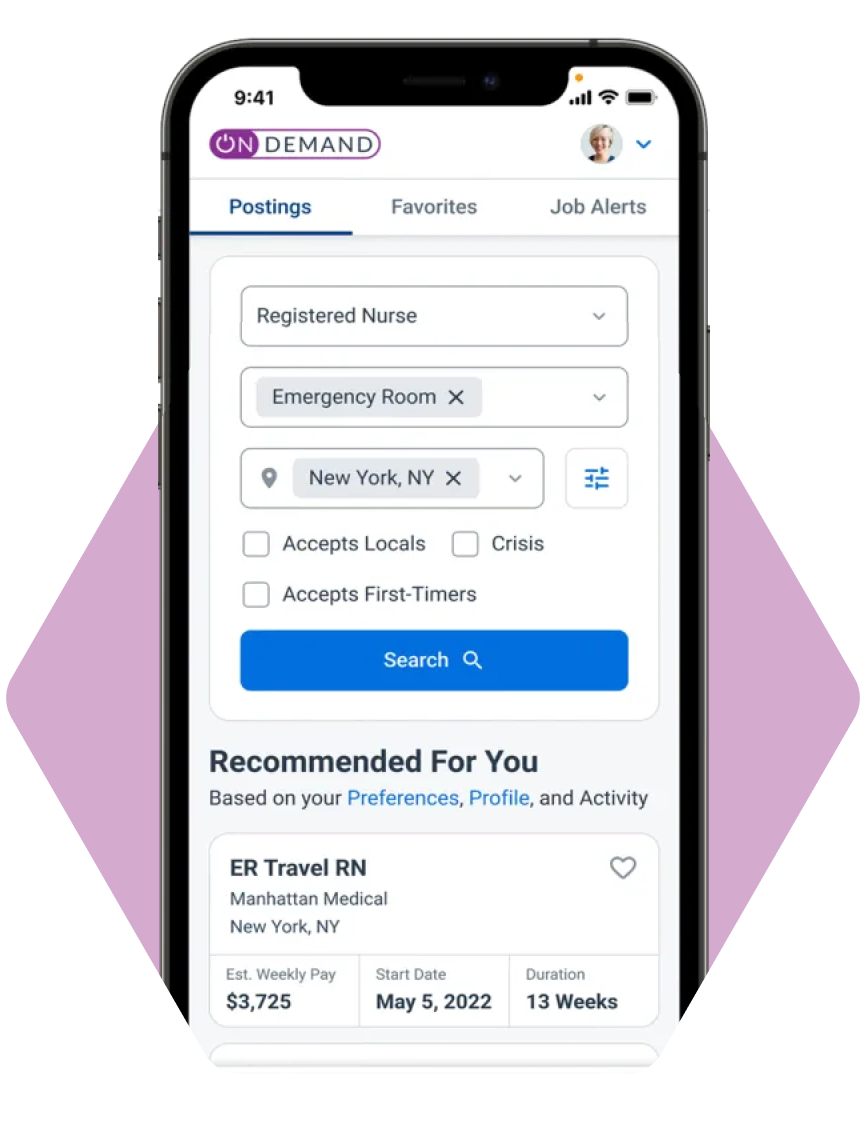
Take Control of Your Career with

Travel Nursing Was Lonely, MedVenture App Is Changing That
Podcast episode, crucial steps to launch your entrepreneurial idea, medventure camp: an all-inclusive camp experience, activities, transportation and accommodation, camp dates and location.

Guest article by, Emily Cheng
>>Listen to Travel Nursing Was Lonely, MedVenture App Is Changing That (with Founder Emily Cheng)
In a recent episode of the Nurse Converse podcast, Emily Cheng, the CEO and co-founder of MedVenture App - the free all-in-one hub to unite and empower all traveling healthcare professionals through community, resources, and tools - offered invaluable insights into her journey from a travel nurse to tech entrepreneur. She discusses the steps she took to launch an app for healthcare professionals. Through her experience, she highlighted three crucial pillars essential for launching a new idea or business: market research, problem validation, and team collaboration.
Later, Emily shares the upcoming MedVenture camp, an all-inclusive in-person summer camp for healthcare professionals and their friends!
- Conduct Market Research
Emily emphasized the utmost importance of conducting thorough market research before diving into any new venture. Market research serves as the compass that guides entrepreneurs through the labyrinth of competition and consumer needs. By meticulously studying existing solutions and competitors, entrepreneurs can identify gaps in the market and opportunities for innovation. Conducting extensive market research before launching an idea will help you discern how that idea fits into the existing landscape and offers something distinctive.
- Validate The Problem, Provide The Solution
Beyond ideation, Emily stressed the significance of problem validation. While an issue might seem pressing to an individual, it's crucial to confirm its universality. Engaging with potential users, industry professionals, and team members allows entrepreneurs to validate the problem's existence and understand its nuances better. This process not only confirms the relevance of the proposed solution but also opens doors to alternative perspectives and potential refinements. Validating the problem ensures that the idea isn't a solution in search of a problem but a genuine response to a pressing need.

@everevolvingem
- Collaborate With Others
No entrepreneurial journey is solitary, and Emily highlighted the important role of team collaboration. Building a team that is not only skilled but also passionate about the identified problem fosters an environment ripe for innovation. Diverse teams bring a myriad of perspectives, skills, and experiences to the table, enriching the ideation and execution process. Collaboration enables shared responsibilities, varied insights, and collective problem-solving, propelling the venture toward success.
- Paving the Path to Success
Emily Cheng's journey from a travel nurse to the Founder of MedVenture App epitomizes the essence of entrepreneurial success: a blend of vision, diligence, and collaboration. By emphasizing the importance of market research, problem validation, and team collaboration, Emily provides a roadmap for aspiring entrepreneurs to navigate the complex terrain of innovation. These foundational steps lay the groundwork for not just launching a new idea or business but crafting a solution that resonates with the market and drives meaningful change. As the entrepreneurial landscape continues to evolve, embracing these principles becomes increasingly imperative for those aspiring to make a lasting impact.
View this post on Instagram A post shared by Em Cheng • MedVenture App (@everevolvingem)
Emily says that one of the unique aspects of the MedVentrue App is that it offers an opportunity for traveling healthcare professionals to connect - all around the world! That’s why they started MedVenture Camp - as a way to connect with each other and with nature.
The all-inclusive camp experience at MedVenture Camp is truly a one-of-a-kind opportunity for individuals in the healthcare profession, as well as their friends and significant others. From the moment you arrive, you will be greeted with a warm welcome and a host of amenities that are sure to make your stay memorable.
One of the key highlights of the camp experience is the all-inclusive nature of the ticket. This means that your camp accommodations, daily cleaning, and all meals are included in the price. You can look forward to delicious breakfast, lunch, and dinner, as well as a s'mores bar at night and a coffee bar that is always available. With an open bar at night, you can unwind and socialize with fellow campers after a day of activities.
Speaking of activities, there is no shortage of things to do at MedVenture Camp - and, there’s something for everyone to enjoy like,
- Cold plunging
- Tubing and paddle boarding
In addition to the wide range of activities, campers also receive an exclusive MedVenture Camp t-shirt and a welcome package upon arrival. Educational and empowering workshops are available for those who are interested, providing a unique opportunity to learn and grow while surrounded by nature.
Themed nights add an extra element of fun to the camp experience, with each night featuring a different theme. This year's themes include "In It to Win It," "Superheroes and Villains," and "Roaring Twenties," offering a chance to dress up and immerse yourself in the festivities.
Transportation to the camp is also convenient, with coach buses available for those flying into Newark, New Jersey. For locals in the area, driving onto campus is an option as well. Whether you choose to take the bus or drive yourself, the transportation logistics are well-organized and hassle-free.
Overall, MedVenture Camp is not just a retreat, but an adventure of a lifetime. It is a place where healthcare professionals and their loved ones can come together to relax, reset, and connect with others in the community. The all-inclusive nature of the camp experience ensures that you will have everything you need for a memorable and enjoyable stay. So why wait? Come join us at MedVenture Camp and experience the adventure that awaits you.
MedVenture Camp Save the Dates: June 6-9, 2024 📍 3287 Hancock Highway, Equinunk, PA, 18417
Connect With Emily on social media:
Instagram: @everevolvingem , @medventureapp , @medventurecamp
TikTok: @medventureapp

Plus, get exclusive access to discounts for nurses, stay informed on the latest nurse news, and learn how to take the next steps in your career.
By clicking “Join Now”, you agree to receive email newsletters and special offers from Nurse.org. We will not sell or distribute your email address to any third party, and you may unsubscribe at any time by using the unsubscribe link, found at the bottom of every email.

Why Log In?
- All collections
You are here
Travel nurses' experience of organizational change.
- Description
Travel Nurses' Experience of Organizational Change: An Exploratory Study
Cooper, Adam (author) Whyte, James (professor directing thesis) Karioth, Sally (committee member) Grubbs, Laurie (committee member) College of Nursing (degree granting department) Florida State University (degree granting institution)
The evolution of the nursing profession is a process that requires nurses to evaluate the nature of change in various professional settings. Due to varied practices throughout the country, some hospitals may not be utilizing the most effective methods for nursing practice. Travel nurses are one group of nursing professionals who occasionally have challenges to overcome when attempting to create change in the context of the workplaces where they are assigned. The purpose of this study was to provide an exploratory examination of travel nurses' experience of their role in participating in or facilitating change on individual nursing units. Three instruments were used to explore this issue: The Trust and Closure Audit Questionnaire, Nursing Work Index-Revised (NWI-R), and qualitative questions developed by the investigator. The results illustrated reasons for the successes and failures of travel nurses to create change. Additionally, the results suggest a profile of the ideal travel nurse in the context of integration into an organization and the changes accompanied by the very integration of travel nurses into a nursing staff. While the sample size and scope of the study were limited, these results are significant. The nursing profession will continue to strive to provide high quality patient care and maintain a safe and healthy environment for patients and staff. During this progress, the need to change and improve nursing practice is vital. There are many methods in which change can occur and the utilization of travel nurses is one of them. This study offers suggestions for utilizing travel nurses to improve patient care and safety.
Travel Nursing, Change, Change Agents
November 5, 2008.
A Thesis submitted to the College of Nursing in partial fulfillment of the requirements for the degree of Master of Science in Nursing.
Includes bibliographical references.
James Whyte, IV, Professor Directing Thesis; Sally Karioth, Committee Member; Laurie Grubbs, Committee Member.
Florida State University
FSU_migr_etd-3411
This Item is protected by copyright and/or related rights. You are free to use this Item in any way that is permitted by the copyright and related rights legislation that applies to your use. For other uses you need to obtain permission from the rights-holder(s). The copyright in theses and dissertations completed at Florida State University is held by the students who author them.
http://rightsstatements.org/vocab/InC/1.0/
In Collections
- Theses and Dissertations

IMAGES
VIDEO
COMMENTS
Take this for what it is, but in the 5 years or so I've been traveling across the country, I have not worked with a single travel nurse that has been audited. Yeah the IRS may have increased their budget and allotted money to the hire of new agents, but it's going to be a long time before they hire and train those staff.
traveltax. •. More than you realize as most people don't go around sharing those experiences Ive defended audits for over 20 years. The IRS is also known to troll social media as they did in the 2010s during the audit sweep of the industry when they also randomly subpoenaed over 400 travelers to discuss their work.
I recently talked with a tax agency that specializes in JUST travel nursing. All we have to do is either a) duplicate expenses or b) in the case of staying with family or friends, pay your person $275/month with a paper check (which is more traceable in event of audit) per NATHO guidelines for "shared expenses.".
There are a few reasons that you may undergo a travel nurse IRS audit. The first and simplest reason is something that we already mentioned in the opening paragraph. The complexity of a travel nurse's income could look like a red flag to the IRS. This is due to elements such as your deductions or your seemingly low taxable wages.
But if you're following Step 2, you should be good to go. Call in the professionals who deal specifically with travel nurse taxes. You don't have to go it alone. And that's it. Comply with all IRS requests, save your documents, and appeal your case if you don't like the results.
Travel nurses can experience tax audits at a higher rate than other positions because of the high rate of nontaxable income compared to taxable income. Why Travel Nurses Are at a Higher Risk of Getting Audited. Travel nursing income is not a traditional "make a base pay, get a W-2" position.
My Experience with a Travel Nurse Who Was Audited By the IRS. I worked at a healthcare staffing company as a recruiter and manager between 2006 and 2012. A travel nurse I worked with off and on between 2007 and 2011 called me in the fall of 2011. He was being audited by the IRS.
Travel nurses have unique tax situations that require special consideration. Travel nurses are strongly encouraged to use a tax professional with experience. There are concrete steps you can take to make tax season easier for yourself as a travel nurse. Travel nursing is a unique form of employment with many different tax considerations.
Ultimately, being aware that travel nurses are at an increased risk of an IRS audit and knowing the risk factors can help them take the precautions necessary to lessen the possibility of it occurring. Whether they are just starting out as a travel nurse or are already in the midst of an audit, making sure they are organized and prepared is key.
Deciphering travel nursing pay and tax rules is one of the most complicated aspects of being a travel healthcare provider (HCP). Tax homes, tax-free stipends, hourly wages, bonuses, benefits, housing and per diem reimbursements are all vital in understanding your travel nursing pay package and your taxes. Now that the 2023 tax season is in full swing, many travel nurses have questions that ...
Interview with a Travel Nurse about their Experiences with Audits. In order to gain some insight into the experience of a travel nurse who has gone through an audit, I spoke with a travel nurse named Sarah. Sarah has been a travel nurse for three years and has completed four assignments in different cities across the United States.
Joseph Smith, EA/MS Tax, an international "taxation master" and founder of Travel Tax, explains that in addition to their base pay, most travel nurses can reasonably expect to see $20,000-$30,000 of non-tax reimbursement payments in a typical year working as a travel nurse.
As the travel nursing industry booms and more and more nurses are leaving staff bedside positions for highly paid travel nurse positions, it can seem like the best possible nursing job.But, there is also an often untalked about side to travel nursing.. Despite the high pay, our 2022 State of Nursing study found that the travel nurses surveyed (127 in total) are actually reporting the highest ...
Frequency of Audits for Travel Nurses. General Expectations for Audits in Nursing: In the nursing profession, audits are conducted regularly to maintain high standards of care. The frequency of audits can vary depending on the setting, organization, and individual nurse's practice. Generally, nurses can expect to be audited at least once a ...
Unfortunately, recent changes in the tax code no longer allow travel nurses to deduct these expenses from their income for tax purposes. Free: Universal Job Application and Credential Management for travelers. There is no one way to keep a record of your travel expenses. However, there is certain information that must be recorded.
At Travel Nurse Tax, our focus is providing you with peace of mind during tax time. We take great pride in providing a service that is above and beyond expectations, so you can focus on what you do best. We have served thousands of travel nurses and allied healthcare travelers over the last 20 years, and are a one-stop-shop for all your ...
In the 2010s, there was a remarkably high amount of audits in the healthcare staffing industry. The exact number is unknown because many of them were done completely internally, which is known as a soft audit. Soft audits are often conducted by the IRS to collect data about a certain demographic of taxpayers.
Hospitals are using more travel nurses to fill staffing gaps. Travel nurses typically cost more financially than staff nurses. The use of travel nurses is sometimes associated with worse patient outcomes based on limited research. Travel nurses help fill gaps in hospital staffing, but there are questions about their impact on patient outcomes.
5. The lasting benefits: The nurses in this study consistently expressed the belief that they have grown both personally and professionally because of their experiences as a travel nurse. They described how their experiences resulted in increased self-confidence, improved technical skills and the ability to manage successfully in any situation.
Final Thoughts on Travel Nursing. Becoming a travel nurse is a thrilling journey that promises adventure, personal growth, and unique experiences. From education and licensure to acquiring experience and embracing essential attributes, travel nurses embark on a profession that combines professionalism with exploration.
First, some hospitals hire travel nurses greater than 50 miles away in order to differentiate them from PRN nurses. Second, some agencies maintain their own internal rules. Third, some states require that state legislators live more than 50 miles from the capital in order to qualify for per diem reimbursements.
Podcast Episode. >>Listen to Travel Nursing Was Lonely, MedVenture App Is Changing That (with Founder Emily Cheng) In a recent episode of the Nurse Converse podcast, Emily Cheng, the CEO and co-founder of MedVenture App - the free all-in-one hub to unite and empower all traveling healthcare professionals through community, resources, and tools ...
The purpose of this study was to provide an exploratory examination of travel nurses' experience of their role in participating in or facilitating change on individual nursing units. Three instruments were used to explore this issue: The Trust and Closure Audit Questionnaire, Nursing Work Index-Revised (NWI-R), and qualitative questions ...